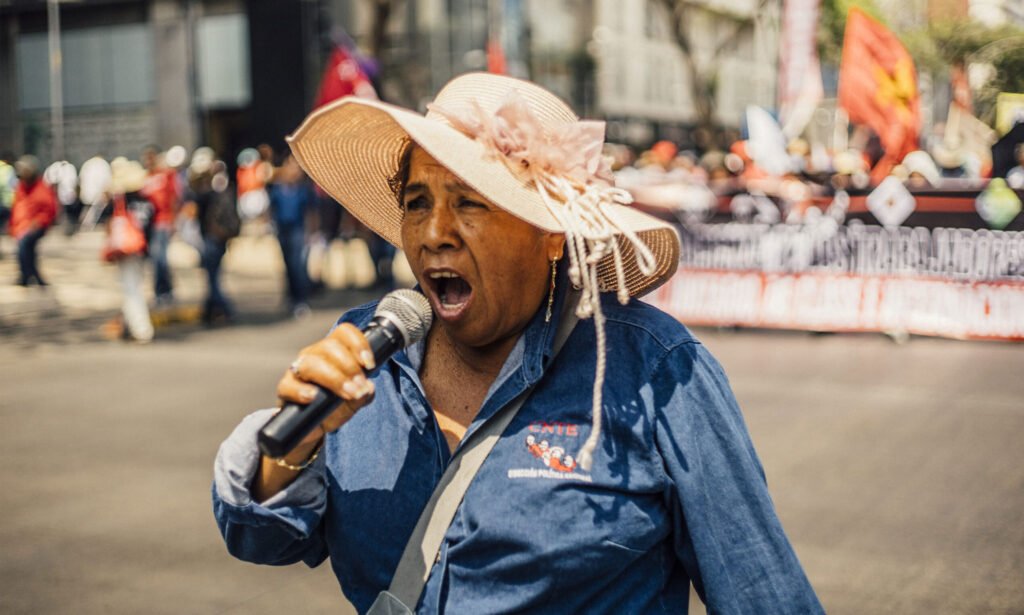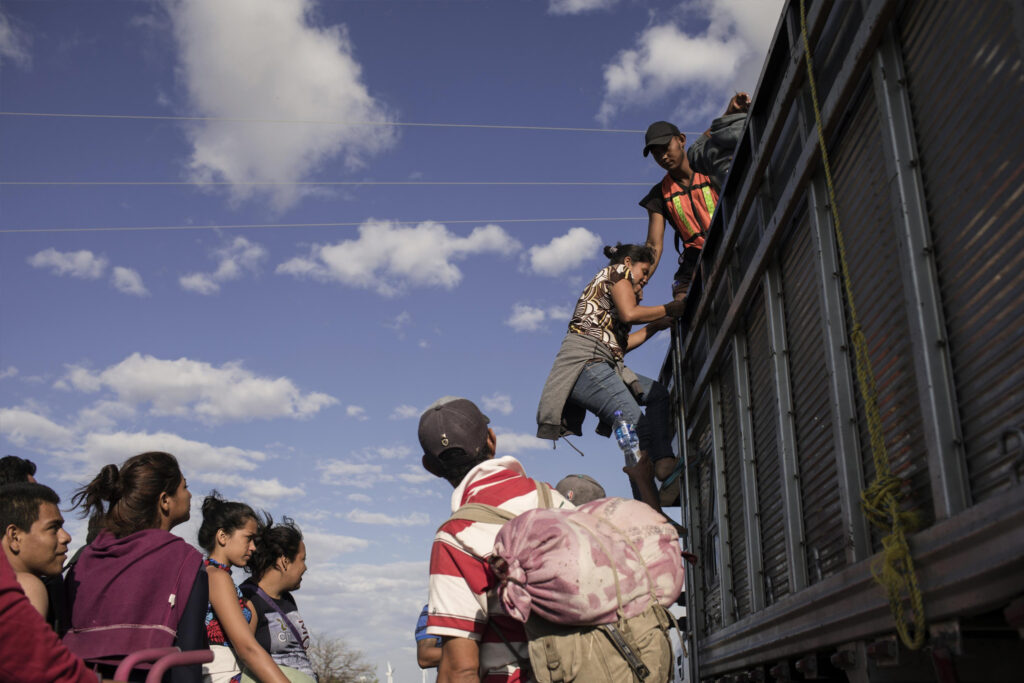To Wage the Cultural Battle?
This editorial by Yásnaya Elena A. Gil originally appeared in the October 27, 2025 edition of El País. The views expressed in this article are the author’s own and do not necessarily reflect those of Mexico Solidarity Media, or the Mexico Solidarity Project.
Within the political dynamics of the seizure of state power, the formation of narrative frameworks is fundamental and, in many cases, decisive in the formation of public opinion. In an attempt to shape this opinion (which will ultimately determine how people vote), different actors enter an arena where they debate and confront each other, trying to mold, in their own image and likeness, what we call public opinion—a set of ideas that is always in flux, constantly being kneaded and transformed by discussion and the dynamics of power. Not all ideas can enter the arena where public opinion is formed; the voices, languages, and ideas that come from oppressed segments of the population are rarely accepted. It is important to note, therefore, that the arena where public opinion is formed is not open to all traditions of thought; it is the place of hegemony. Placing an idea there for debate is not possible for all peoples, even if they never stop fighting for it. To transform reality, it is necessary to transform the world of narratives that sustains it.
The ideas and narratives that are placed in the arena that shapes public opinion are those that a significant portion of society considers acceptable for debate. A few years ago, the decriminalization of abortion was not part of the debate and, therefore, could not even be discussed; it was unthinkable to even raise it in the debate. That changed; the idea was placed in the public arena, and has ultimately resulted in the decriminalization of abortion in many states across the country. The set of ideas that enter the arena and can be subject to debate is known in certain circles as the “Overton window,” named after a person who studied the workings of political communication.
In the process by which the far right rises to power in various countries around the world, the inclusion of their ideas in public discussion is fundamental. For the far right, it’s necessary to place ideas we thought were unthinkable or outdated in the arena of debate. Since they have power, they burst into the discussion with the aim of widening the Overton Window and stretching it further to the right. They try to advance ideas so radical that the opinions of the traditional right begin to seem sensible. Their ideologues call this process “fighting the cultural battle,” intervening in the narrative to challenge public opinion; all far-right leaders insistently call for fighting that battle.
As a result of the Mexican Revolution, whose ideological influence remains strong in public opinion, the extreme right is only now conspiring in this country. Their ideas lack a popular base, the vocabulary used by figures like Eduardo Verástegui is not yet part of the vocabulary used in the arena of public debate, and none of them can compete in popularity with Claudia Sheinbaum and Morena. Their movement, if we can even call it that, still provokes mockery and laughter. Seeing the international shift toward a more extreme right, it’s important to be aware that the far right in Mexico is insignificant, even if it tries to be noisy; but it was also laughable in many places around the world where it now governs or holds legislative seats. In those countries, they went from being laughed at to being concerned about them. What happened? How can we prevent the rise of a Mexican Milei or Trump?
A fundamental part of the answer has to do with the very functioning of the ruling party. On the other hand, on our side, given the current state of the far right in Mexico, it is essential not to engage them in a cultural battle. I observe with great concern the way in which, unnecessarily, certain sectors of the left are needlessly bringing a figure like Ricardo Salinas Pliego into the media ring, eager to place his ideas and his vocabulary in the public arena. Let’s not engage him in a cultural battle; that phrase has already been captured by them. Let’s not disseminate his ideas, no matter how absurd they may seem. Let’s not debate him, let’s not give him media coverage or a presence on our social media, let’s not make them subjects of public dialogue. If Salinas Pliego already has his declining Fuerza Informativa Azteca (Aztec News Force), is it necessary to give him the microphones at the morning press conference, even if it’s to discredit him? Let’s not allow Salinas Pliego to widen the Overton Window toward the far right. What they deserve is silence. We shouldn’t wage this cultural battle because, in doing so, we run the risk of legitimizing them as adversaries.
-
CNTE Announces 72 Hour National Strike & March to Mexico City’s Zócalo
The class-conscious teachers union will also make “courtesy visits” to the embassies of countries who committed atrocities against Iran, to show their rejection of US imperialism.
-
Yet Another Mexican Citizen Dies in ICE Custody
The unidentified victim is the 9th Mexican citizen to have been killed in ICE detention since the beginning of 2025; this time in Adelanto, California.
-
Let’s Talk About Migration: Trumpist Persection
Millions of women who have endured unspeakable violence on their migration journey are now being persecuted in the United States by an extremely xenophobic and misogynistic government, led by Donald Trump,




